It is 100 years since Vishvabharati was set up by Rabindranath Tagore at Shantiniketan, his family property 150 kms from Kolkata.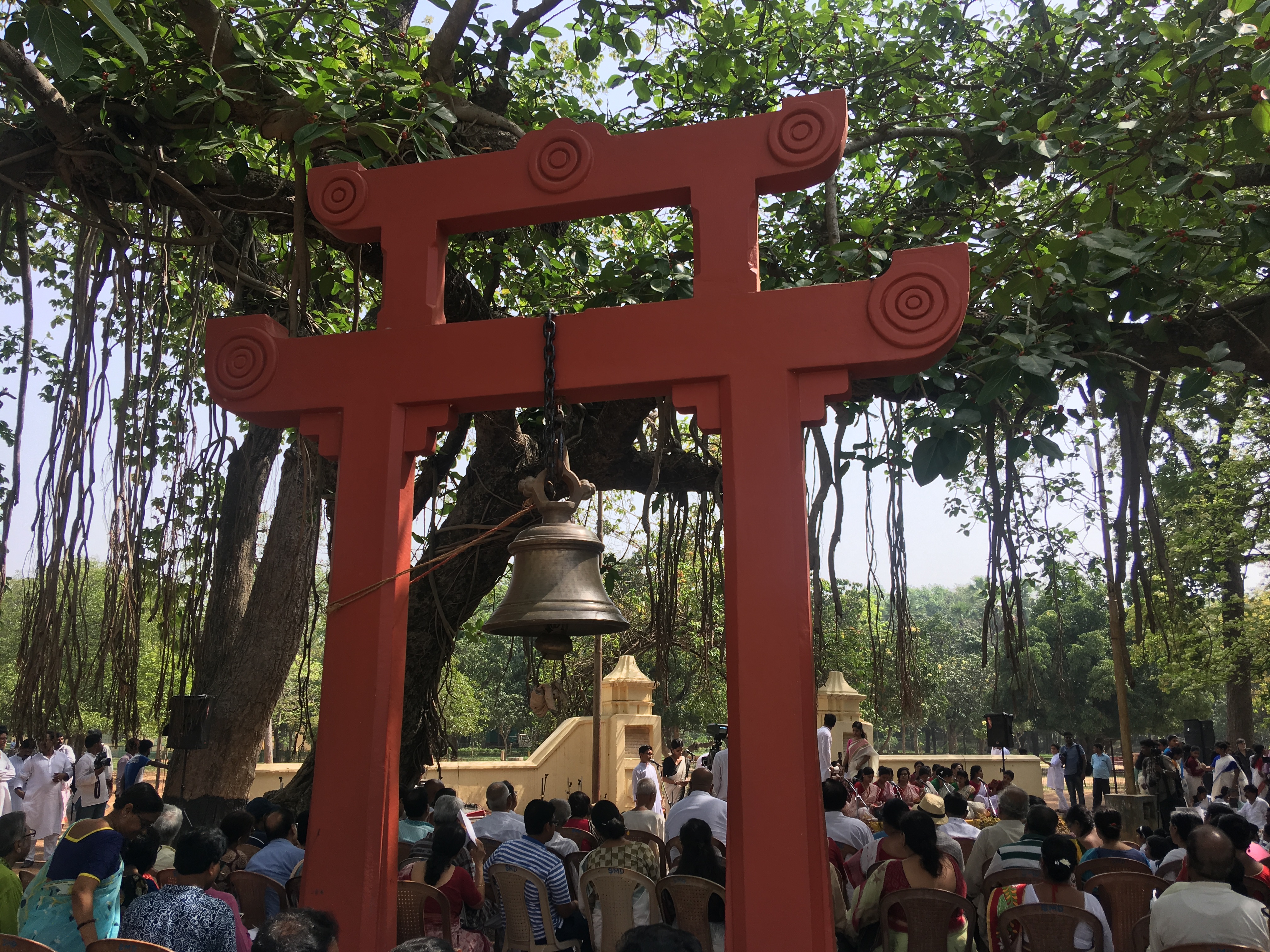

It was the darling of the Tagores’ hearts. Their dreams rocked in her arms. In the shadow of her trees, they met. She was their fresh wonder of love. She was their Shantiniketan, where peace stayed put.
But the serene realm was once a land named after a dacoit and was called Bhubandanga. It even had the presence of disturbing elements in its vicinity. Yet, as Debendranath Tagore took a boat ride through that area in 1862, the place aroused deep peace in him and he bought the land to turn it into a spiritual retreat for people to meditate and be in communion with nature. It was then named Shantiniketan, in response to the feeling that Debendranath Tagore experienced in the place that was full of Chhatim trees and palm groves.
Later, his son Rabindranath, who grew into one of India’s sparkling literary geniuses, found the place fit to be developed into a school where education “does not merely give information but makes life in harmony with existence”. It was after he had returned from England in 1890. The system of learning with a private tutor (as was his education) in a classroom, he felt, was not the proper way and cannot complete the process of learning. He was determined to create a school in tandem with the ancient ‘Gurukula’ culture.
Thus, in 1901,he established the ‘Brahmhacharya Ashram Vidyalaya’ on the premises of his family’s ‘Shantiniketan House’ with five students including Rathindranath, the poet’s first-born, and a few teachers.
The school, which later came to be called Bolpur Brahma Vidyalaya’, had classes held under the vast canopy of trees rather than in stifling rooms. This school is now known as patha bhavan.
The educational framework later expanded to the globally recognised Vishvabharati University, which was officially inaugurated as a college in 1921 by Acharya Brajendranath Sheel at the ‘Amrakunja’ (the great mango tree). This vision of Rabindranath Tagore, to bring the world under one roof, is now entering its 100th year.
Now a deemed university, Vishvabharati has a lot to be proud of; its alumni including some of the best minds in the country such as Ram Kinkar Baij, Nandalal Basu, Benode Bihari Mukherjee, Syed Mujtaba Ali, Mahasweta Devi, , Satyajit Ray, Indira Gandhi, Suchitra Mitra, Mohan Singh, Shantidev Ghosh, Amartya Sen, and many more
Above all, it still is a place where peace and culture coexist with nature and in the minds of the people who live there.
“To Tagore, the motto of a proper education is the complete development of the human mind. The poet always emphasised on health fitness, games, handicraft, and village services for the children besides their education at Shantiniketan. He wanted to blend the essence of beauty with the happiness of education,” says a faculty at Shantiniketan.
Tagore’s dream nourished the Vishvabharati from its roots to be a wonder in the world of education. The practice of self observation and an intimacy between teachers and students in the realm of nature was his aim. He had admiration for ancient traditions; with that, he combined the general education system. Thus oriental and occidental contexts were blended and so were the urban and the rural cultures. There was learning with nature, art, music, dance, drama, literature, history, and health, agriculture, village and social services along with the mix of science, philosophy and religion.
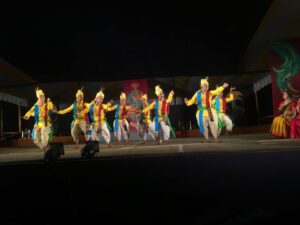
What was on the platter was a prospect for the individual soul to evolve into a wholesome, universal one.
Also, the presence of foreign teachers Pearson, Churls Friyar Andruz, Silva Levi, Tuchchi, Stanli Jones, Dr Mark Collins, Bho-Chen-Lim, Stela Kramrish, and the inclusion of two specialists from Japan to teach Jujutsu allowed the institution to explore cultures of world in accordance with the Indian concept of ‘Vasudhaiva Kudumbakam’ (the whole earth is one family). With all this, the name Vishwabharati fitted the context just too aptly.
Hundred years hence, the students and faculty of the Vishvabharati still maintain the tradition of Tagore. Apart from the academic courses, the festivals that the poet introduced to celebrate nature and its seasons–such as the Bengali New Year, Vriks haropana (the tree planting ceremony), Halakarshan (the ploughing ceremony) during monsoon, Vasantotsav on the day of the ‘Dhol Purnima’ in Spring, the Poush mela (the festival of Poush) that is an annual meeting of local artisans who bring their fares for display, and many more–are observed with the same reverence as before.
haropana (the tree planting ceremony), Halakarshan (the ploughing ceremony) during monsoon, Vasantotsav on the day of the ‘Dhol Purnima’ in Spring, the Poush mela (the festival of Poush) that is an annual meeting of local artisans who bring their fares for display, and many more–are observed with the same reverence as before.
Probably enticed by all these, and with the same feel of peace and tranquility that attracted Debendranath Tagore to Shantiniketan in 1862, urban civilisation wants to more than be a visitor to this serene corner of the globe. And real estate groups seem to be cashing in on the move, with newspapers displaying advertisements for upcoming apartment projects that promise life near the tranquil, cultural environs of Shantiniketan.
Then, there is also the call of times when the world across, education is becoming aggressive and fiercely technology-driven. Some in Shantiniketan feel the repercussions are felt within the educational community also.
“There is still independence in the education system of Vishvabharati. It has its own idealism, but today, Vishvabharati has lost its reputation to the entire world. We should honor its dignity. On Vishabharati’s centenary, one thing we all should take care of is its solemnity,” says Swapan Ghosh, an old ashramite of Vishvabharati, who feels it is time to perceive what Rabindranath Tagore said in 1890 when he resolved to set up an educational system that goes back to the roots. “Similarly, Vishvabharati has to go back to its roots,” Swapan Ghosh says.
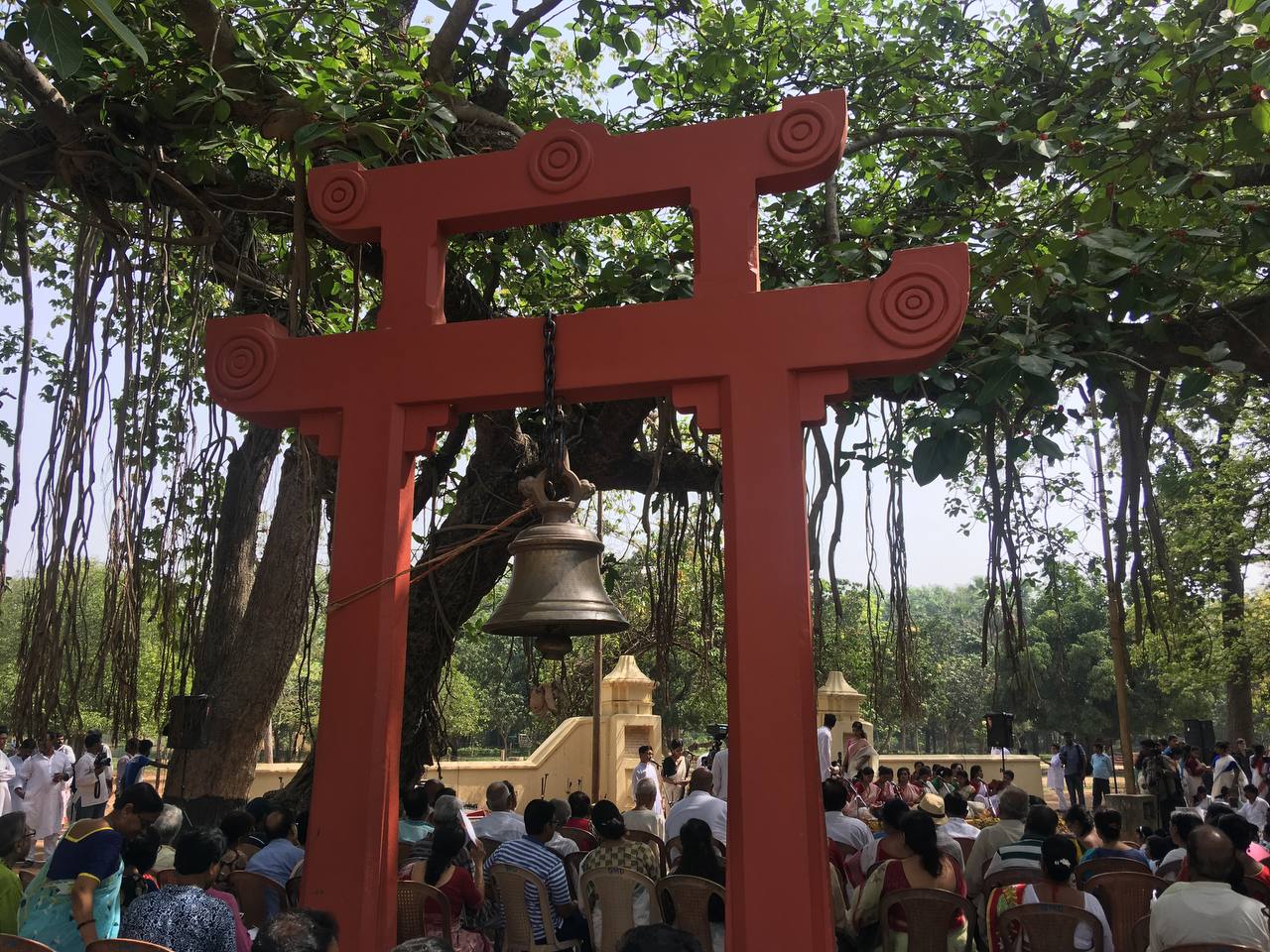
Edited by: Aparna Nair
Photographs by: Arpita Dey

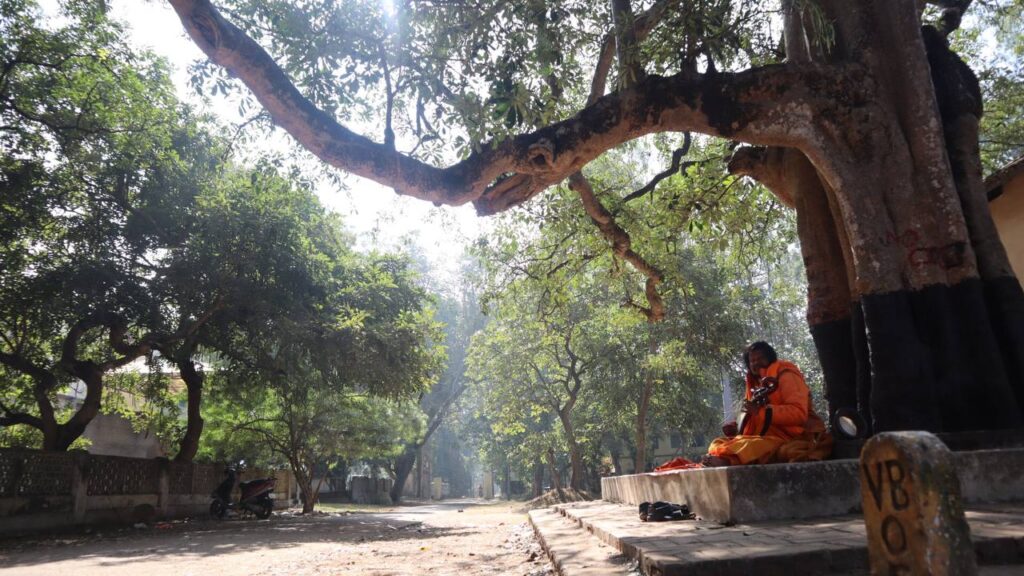

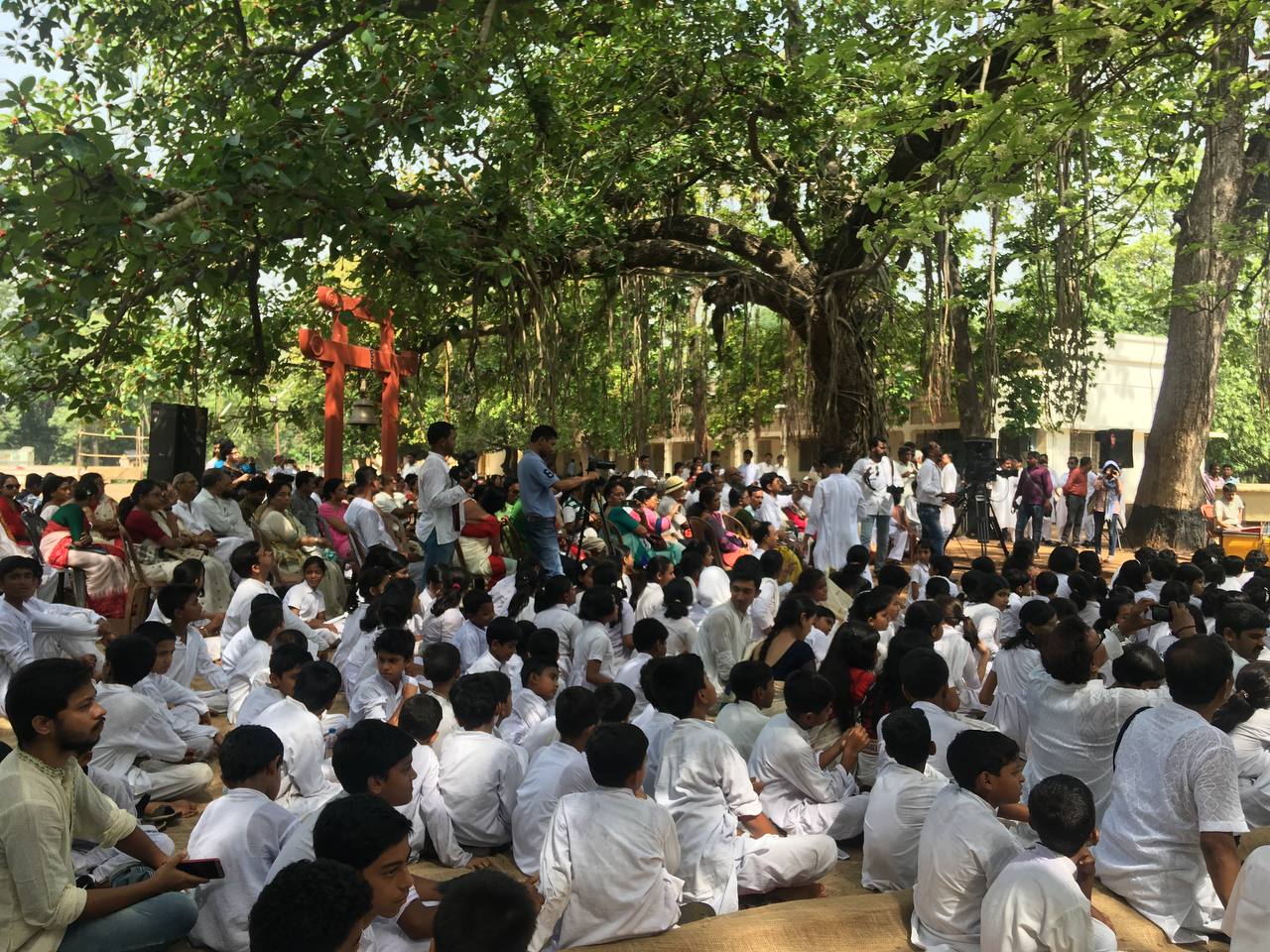

2 Comments
Through: The Voices
Congratulations Arpita Ji for this wonderful coverage on the birthday of legendary literary artist who contributed National Anthems to two neighbouring countries.
Congratulations once again.
Almighty bless.
Neel
NannuNeeL77@gmail.com
+91-94184-70707
Beautifully written Arpita! Best wishes for all future endeavours! Kobiguru Thakur is and will always be amongst us all through myriad of this splendid creations! Hats off for covering each and everything so precisely!